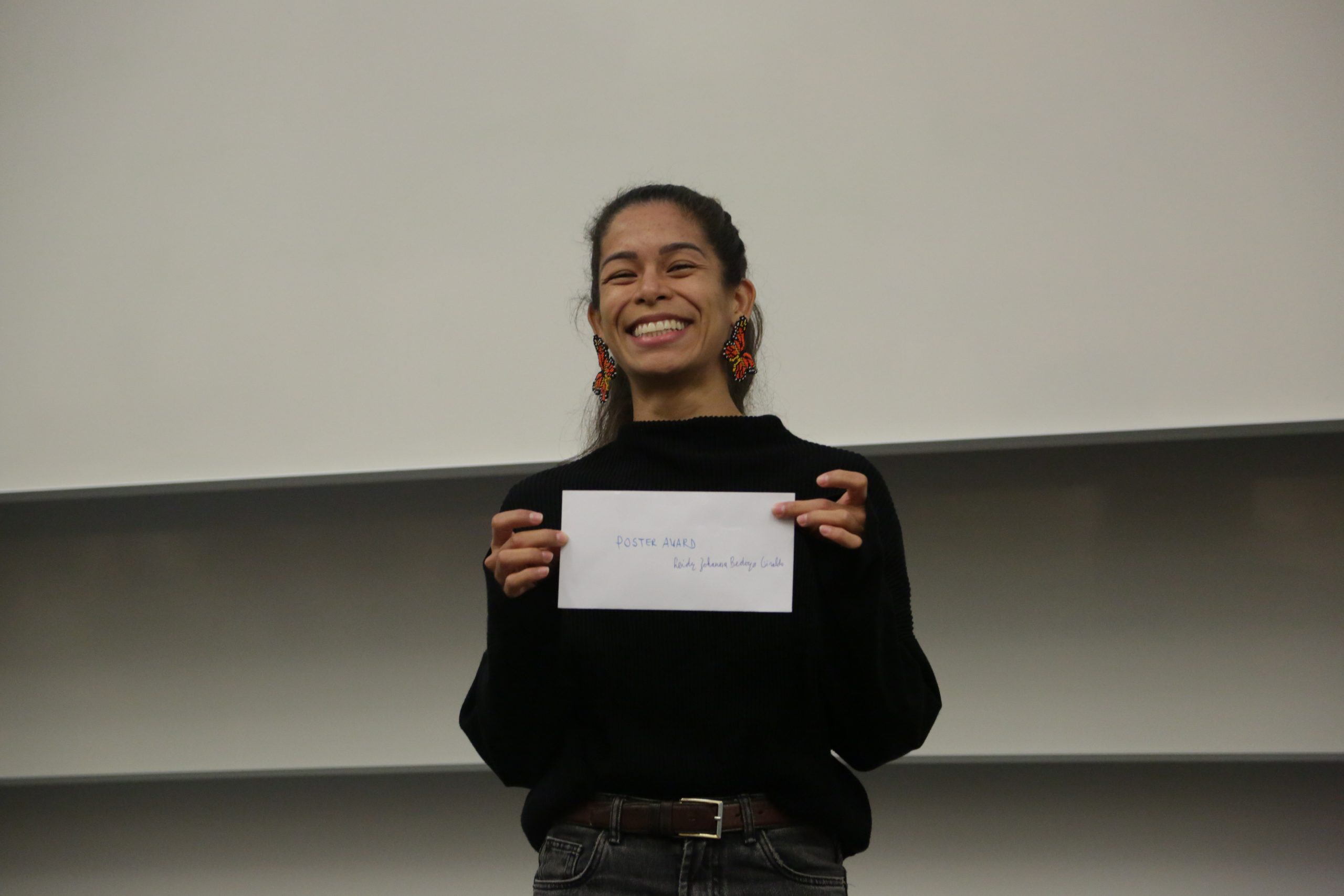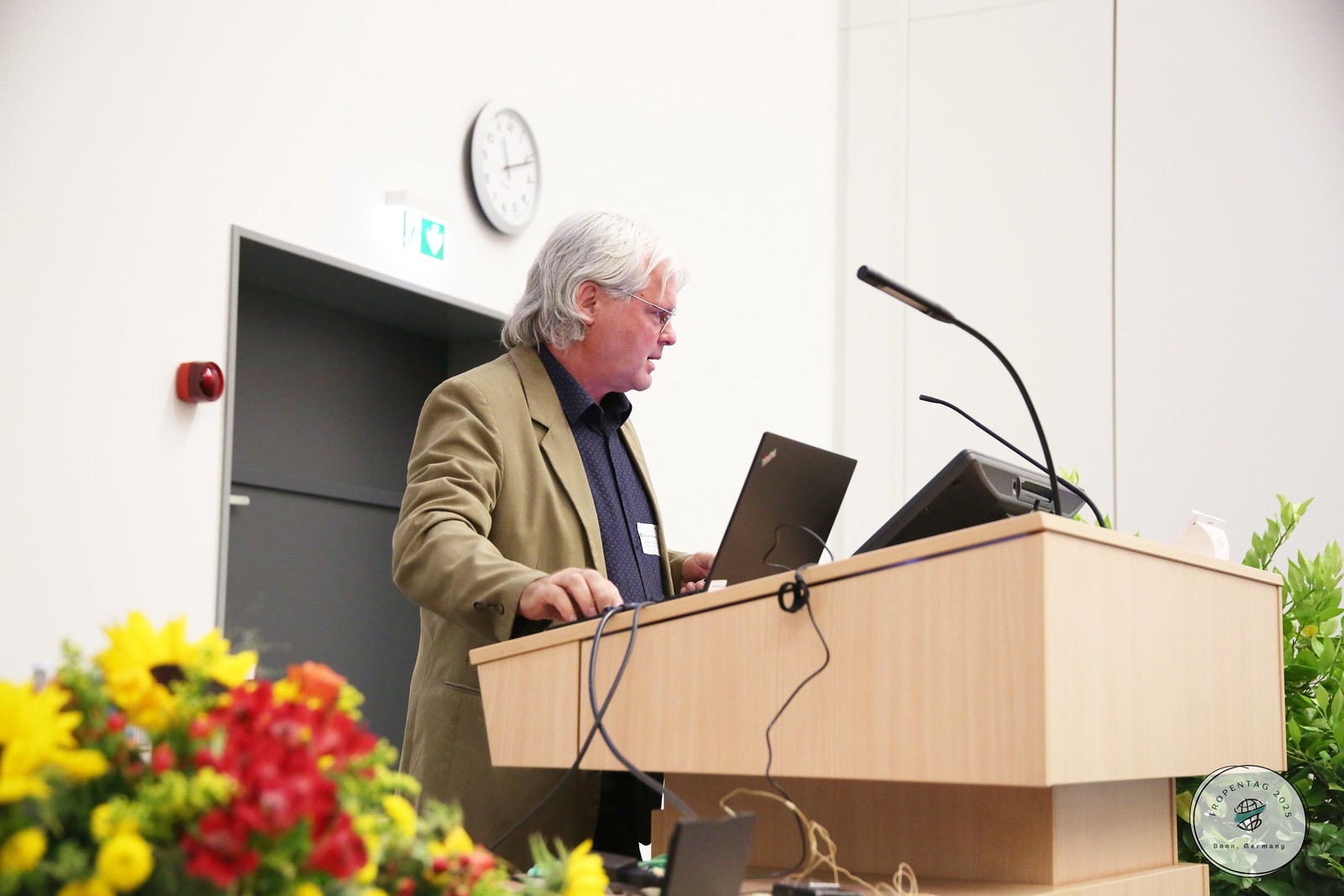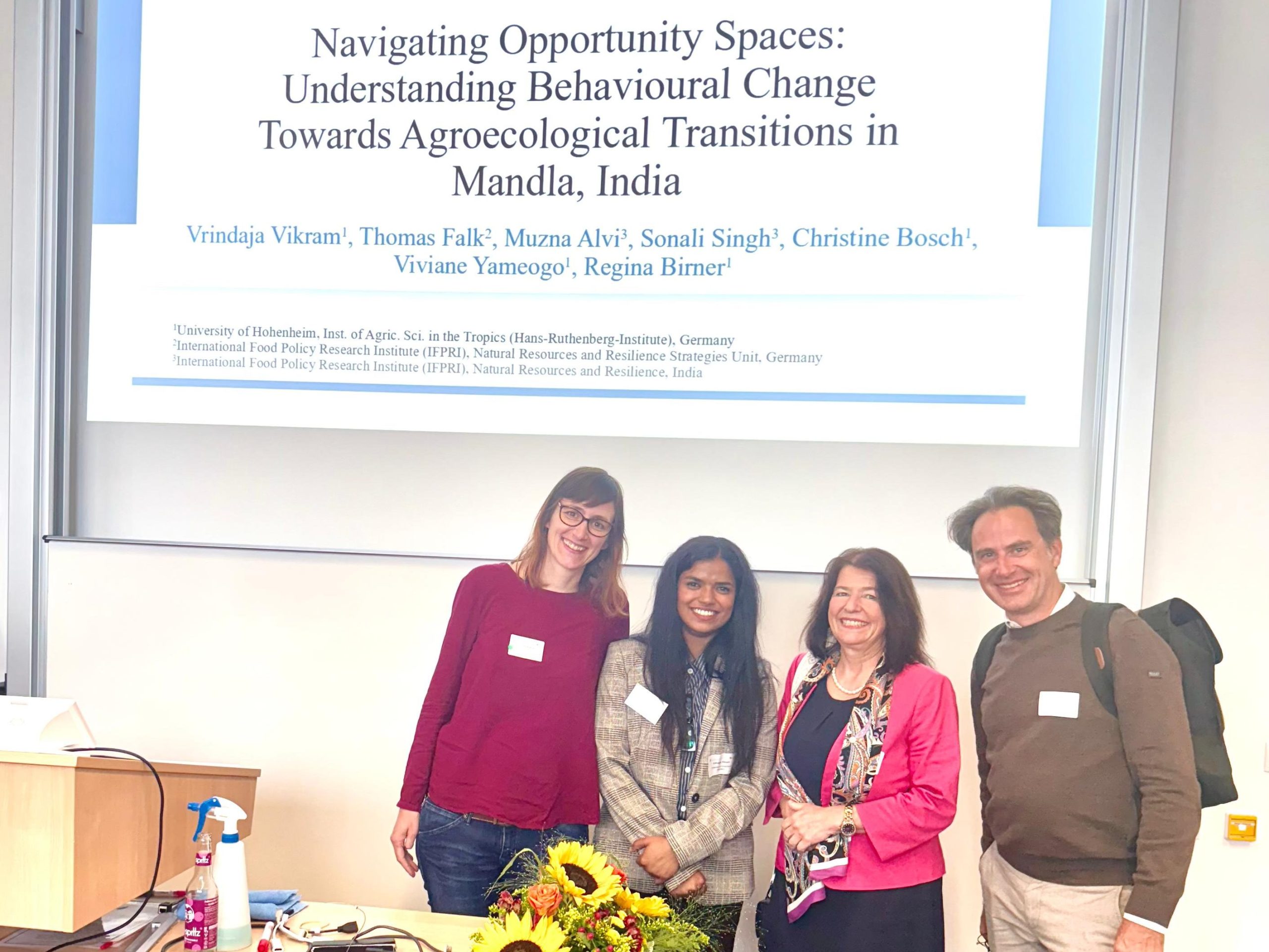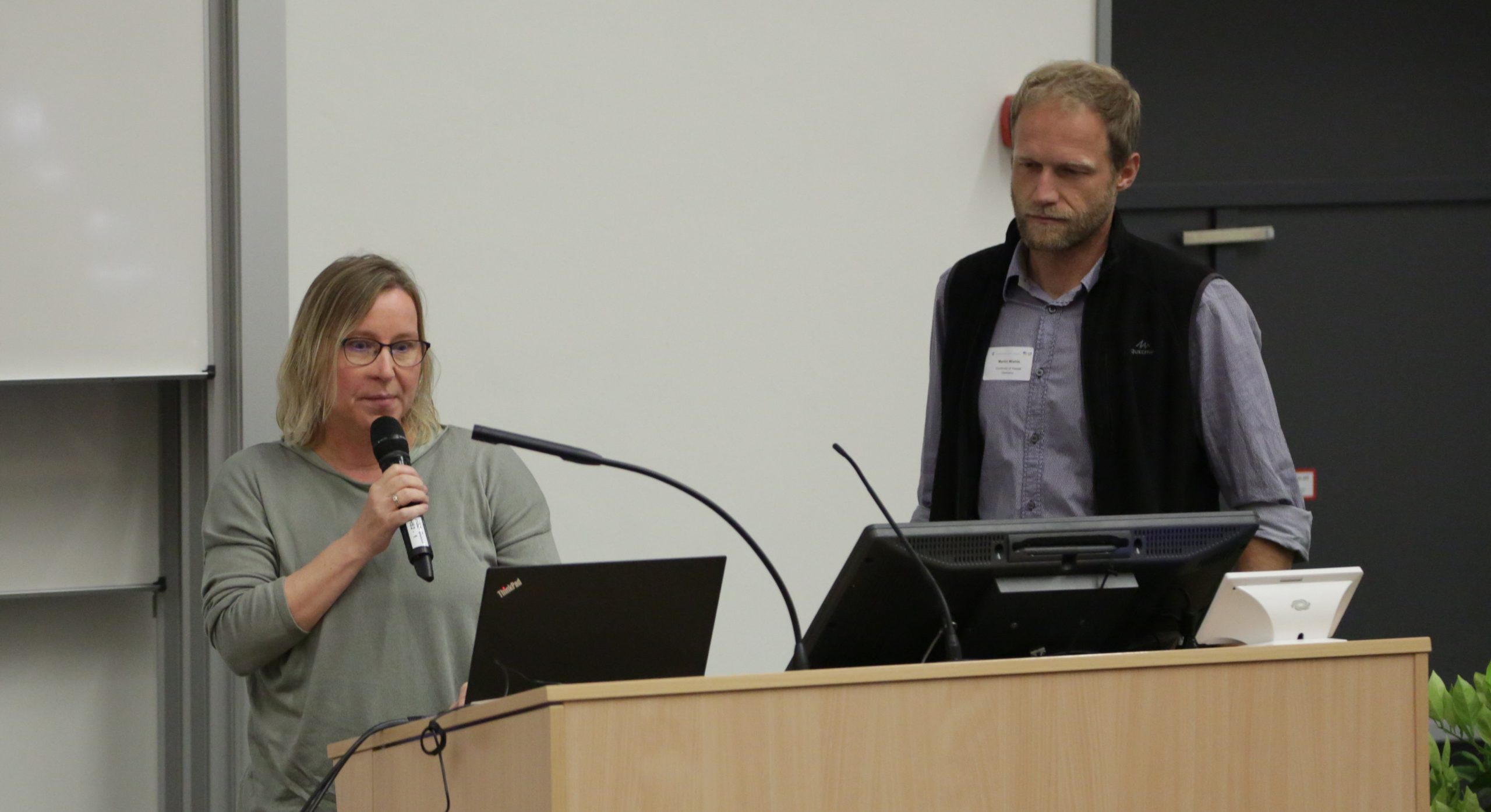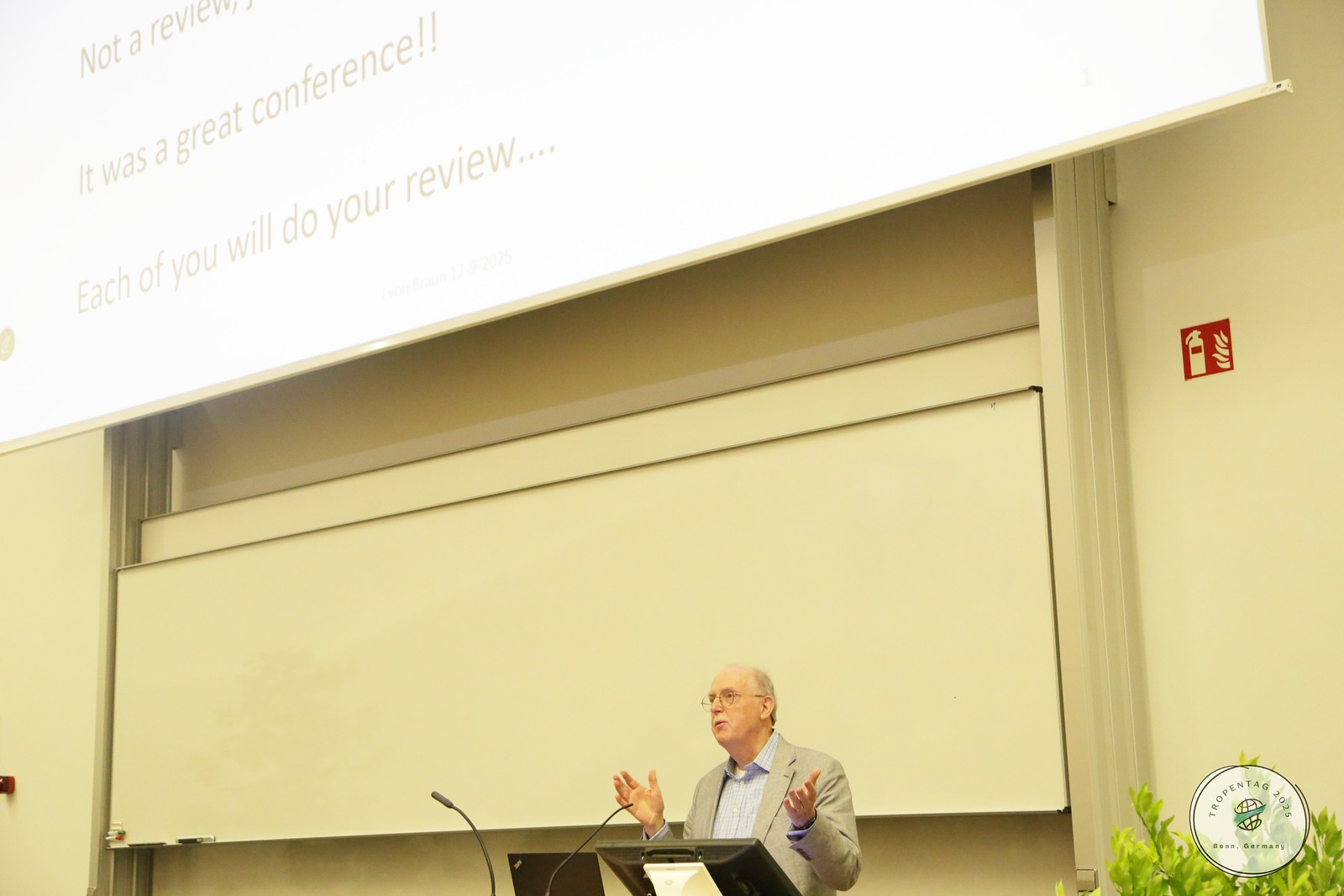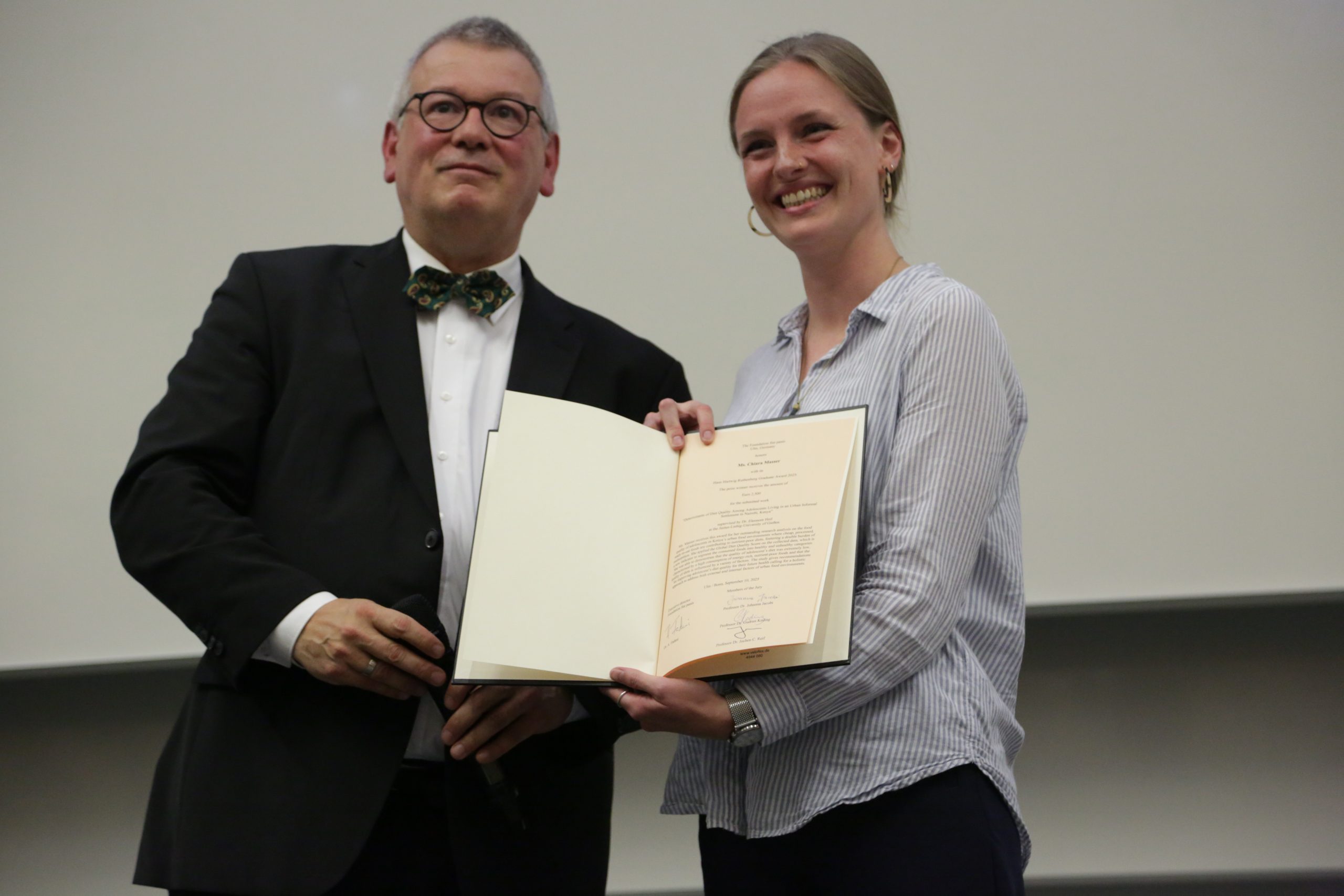How local knowledge and adaptive practices are redefining conservation and livelihoods in one of the world’s most vital ecosystems. In the vibrant bustle of Tropentag 2025, one poster quietly pulled visitors in. Its muted greens
In conference halls, paradigms compete. In the fields, farmers blend whatever works.
Imagine being a farmer who wants to do things differently—grow more diverse crops, care for the soil, reduce chemical use. You can already see the benefits. Your neighbours agree. Yet without access to credit, without
After three days of vibrant discussions and knowledge-sharing, the curtain falls on this year’s Tropentag in Bonn. Under the theme “Reconciling Land System Changes with Planetary Health,” researchers, students, and practitioners came together to exchange
The hard questions for agriculture are inseparable from the hard questions facing society.
The journey began with two beloved beans: coffee and cocoa.
How much progress are we really making against malnutrition amid global, socio-economic, and agricultural shifts? The answer, as expected, was complicated. There are signs of improvement, but also stubborn inequalities that mean some communities still face empty bowls while others have choices in abundance.
Artificial intelligence can be harnessed for fine-scale crop yield forecasts. Imagine farmers planning their harvests with the same accuracy as weather apps predict rain. Suddenly, “farming under uncertainty” looks a lot less uncertain.
In Nairobi’s informal settlements, teenagers know healthy eating matters—but poverty and limited food choices keep balanced diets out of reach. At Tropentag 2025, Chiara Masser from Justus Liebig University Giessen presented striking new evidence on
Bridging Equity and Sustainability in Agricultural Water Management: Lessons from Africa and Germany
As climate change reshapes rainfall and intensifies competition for water, farmers face a dilemma: how can irrigation secure both survival and sustainability? This dilemma took center stage at the Tropentag 2025 pre-conference workshop on “Reconciling

